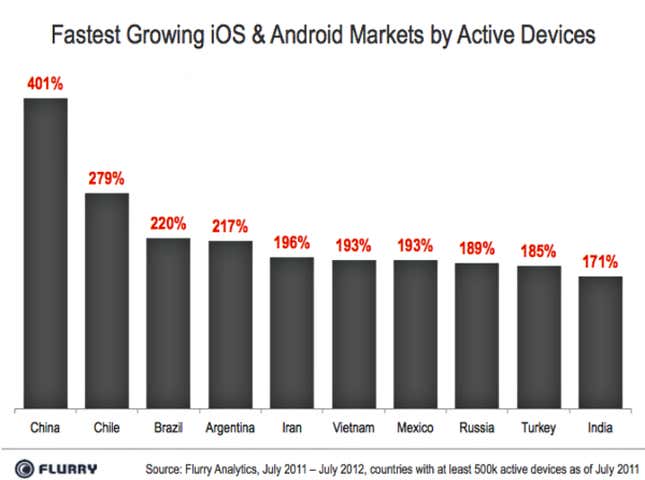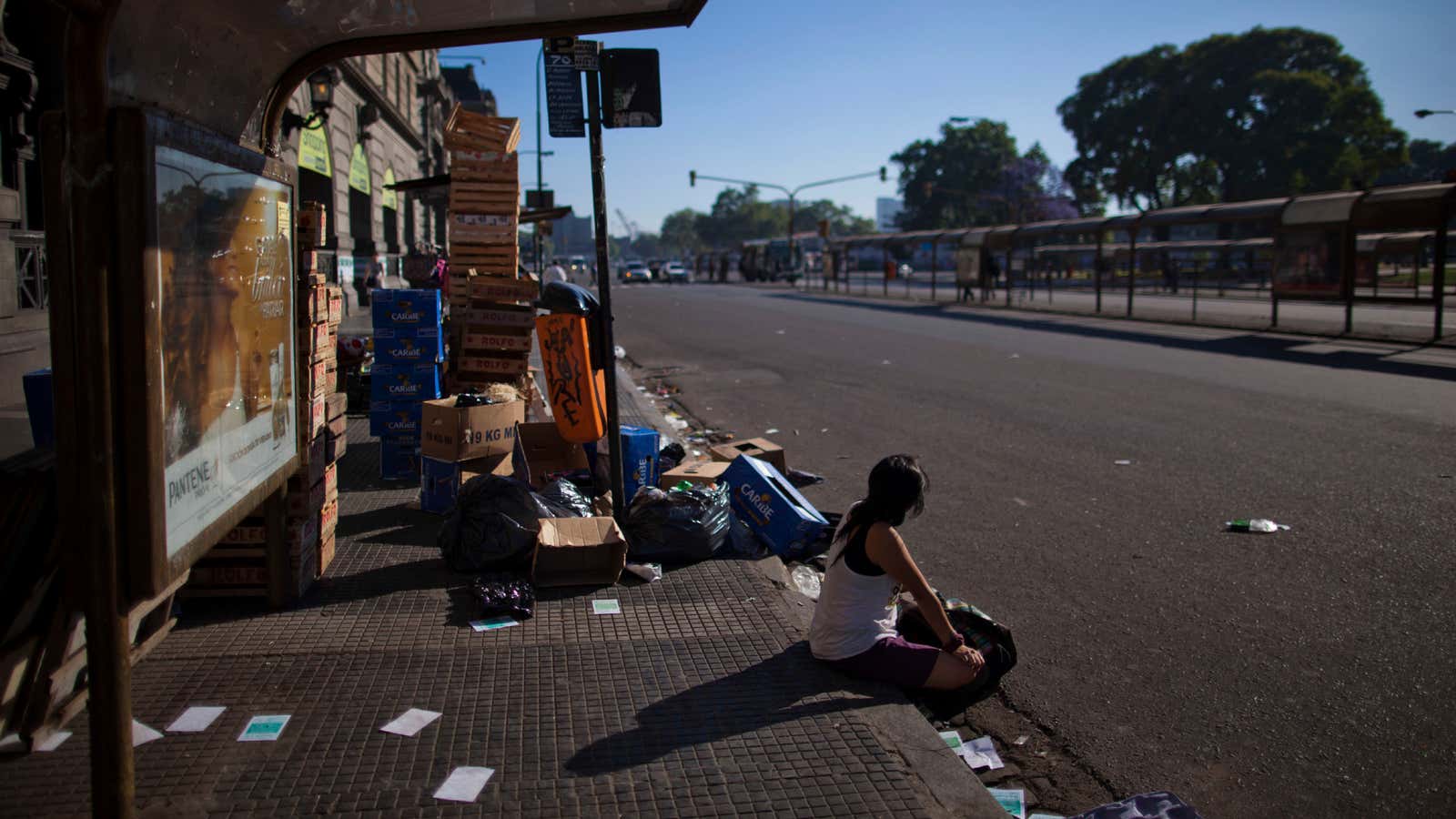It’s too hard to pay developers in Argentina for Android apps, so Google isn’t going to anymore.
Last Friday, Google began sending letters to developers in Argentina announcing that, as of this summer, all paid mobile apps will be unpublished. Here’s an excerpt that explains the gist of it:
Due to the obstacles that currently exist for payments in Argentina, we will no longer pay the programmers of Google Play that are in that country… If you are legally able to do business in one of the other supported countries and otherwise satisfy the Google Wallet Terms of Service for that country, you may register for a Google Wallet Merchant Center account in that country and transfer your applications to it.
Google hasn’t shared the precise details behind its decision (and did not respond to several requests for comment), but this has been the obvious guess: Argentina’s economic woes and monetary restrictions are making it hard for the company to pay developers in the country (presumably because the Argentinian government is restricting the flow of US dollars into the country). That’s what the Verge, Android Authority and a slew of other tech news outlets are suggesting.
But as it turns out, they’re wrong.
Google probably won’t say so, but the issue actually has very little to do with money. Google isn’t incurring extra financial costs, tariffs or charges for doing business with Argentines. Instead, this is a logistics problem: Google simply doesn’t want to put up with all the paperwork required to transact with Argentine banks.
Paying app developers in Argentina is easy enough, but the paperwork is a drag
Google pays its mobile app developers temporally. In other words, developers are paid for the sum of downloads made over a period of time, rather than for each transaction. When it’s time to dole out the cash owed to developers in Argentina, the transaction is fairly simple: Google wires the money to an Argentine bank, which, by Argentine law, converts the dollars to local pesos at the official rate. There’s probably some money lost on the developers’ side—since the official rate isn’t necessarily the market rate—but as far as Google’s concerned, who cares.
The headache, however, starts as soon as a developer decides to collect the paycheck, Argentina-based web and mobile app entrepreneur Pablo Grandinetti told Quartz.
When a developer wants to get the money, he has to show an official receipt or invoice. Banks function differently here; they are outdated. If you don’t have an invoice, the bank won’t give you your money.
That means developers have to send an invoice to Google, which Google doesn’t actually need or want, just so they can collect their money. That costs Google more time and, indirectly, money, all because Argentina’s banking system is still reliant on outdated paperwork. “It’s a total pain for them to handle the customer support,” Grandinetti said.
So Google decided to scrap it.
Google is turning its back on a budding developer ecosystem

Google’s decision appeared abrupt (the brevity of Google’s announcement angered Argentinian developers, which have taken to online forums to vent their frustrations). But in all likelihood, it was a tough one to make. Among countries with established smartphone markets, Argentines are not only buying a lot of smartphones right now (over 500,000 smartphones are already in circulation), they’re activating new smartphones at the fourth fastest rate globally. The rising prominence of smartphones in the country is quickly turning it into a hub for app development in Latin America. Its developer community is growing so fast that local universities are struggling to keep pace with demand for skilled developers, editor-in-chief of the local business site Apertura Pablo Fernández told Quartz.
The country is actively pushing the study of computer science and creation of developers because it’s easy for developers to find work these days.
According to the Association of Videogame Developers in Argentina, the number of developers has grown by over 150% in the last year, mostly for mobile and web-based apps. What’s more, most of those developers are focused on creating apps for Google’s Android system, which is driving the country’s smartphone growth.
Has Google wounded Argentina’s developers?
It’s unclear what the lasting effects of Google’s decision will be. Some believe it has already wounded the developer community’s spirit, Grandinetti explained. “Developers are losing the sense that Google wants to be part of its growing community.”
Some of the developer frustration is aimed at Argentina’s government for making business hard for corporations like Google. After all, Google was courteous enough to offer an alternative to unrelenting Argentine developers:
If you are legally able to do business in one of the other supported countries and otherwise satisfy the Google Wallet Terms of Service for that country, you may register for a Google Wallet Merchant Center account in that country and transfer your applications to it.
In other words: We don’t want to deal with Argentina, but feel free to open a bank account somewhere elsewhere.
